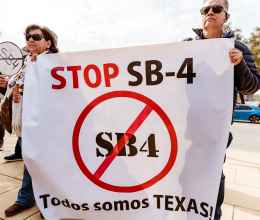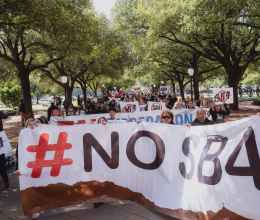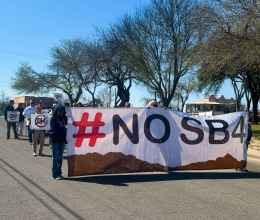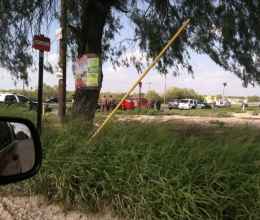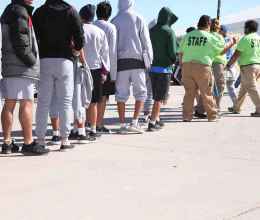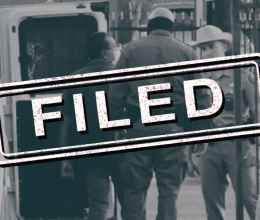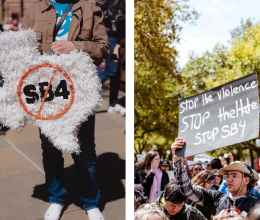
FOR IMMEDIATE RELEASE
July 22, 2014
Contact: Anna Núñez, ACLU of Texas, 713-942-8146 x103; [email protected]
HOUSTON, TEXAS – Texas Gov. Rick Perry today announced plans to deploy 1,000 Texas National Guard troops to the Rio Grande Valley in response to the increase in unaccompanied immigrant children, mostly from Central America, crossing the Texas-Mexico border. The Central American countries from which children are escaping have some of the highest homicide rates in the world, where children face gang violence and rampant crime.
The deployment of the National Guard will cost taxpayers up to $12 million per month. Combined with costs to maintain the Texas Department of Public Safety surge at the border, the total comes to approximately $5 million a week.
The following can be attributed to Terri Burke, executive director of the American Civil Liberties Union (ACLU) of Texas:
“Since the beginning of this humanitarian crisis, elected and law-enforcement officials in the Rio Grande Valley have observed no increase in crime, which is not a surprise. These are children who are running into the arms of the Border Patrol agents. They aren’t sneaking in. They aren’t resisting arrest. They have come to escape the violence and crime in their own countries. Yet Governor Perry insists on needlessly further militarizing our border for what can only be interpreted as a political stunt.”
The following can be attributed to Adriana Piñon, senior staff attorney for the ACLU of Texas:
“Our border communities already face the most militarized zone in the nation, with more than 18,000 U.S. agents stationed along our Southwest border. Increasing, yet again, the number of law enforcement personnel patrolling our border communities will only escalate the potential for interactions that violate border residents’ constitutional rights and degrade the quality of life for everyone at the border.”
The following can be attributed to Matthew Simpson, policy strategist for the ACLU of Texas:
"When there’s been no documented increase in crime, increased humanitarian aid, not more law enforcement, is the appropriate response to an influx of refugees. Through an enforcement and now military approach, the governor and state leaders divert needed resources from a more appropriate humanitarian response.”
